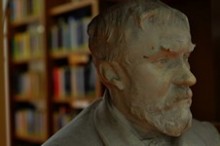La prochaine Grande Conférence des Archives Henri Poincaré aura lieu le mercredi 23 octobre. Peter Lamarque (University of York) proposera une conférence intitulée : " The Experience of Poetry ". La conférence aura lieu à Nancy, sur le Campus Lettres et Sciences Humaines de l'Université de Lorraine, place Godefroy de Bouillon, bâtiment G, salle G04, rez-de-chaussée, de 18h à 20h. Le programme mis à jour et les résumés des Grandes conférences sont disponibles sur la page dédiée. Toutes les conférences pourront être suivies en direct sur internet. Pour plus de détails, écrire à : Laurent Rollet.
Résumé : The lecture explores how the idea of experience might apply to literature in general and poetry in particular. Any kind of sensory experience seems at best marginal, for example, to the novel. To speak of the experience of a novel seems not to be speaking of sensory experience. Yet the aesthetic—certainly aesthetic experience—seems closely tied to the sensory. Do we then mean something different when talking of experience in the literary realm? Maybe. But poetry lends itself more readily to talk of experience, aesthetic experience in particular and even sensory experience. Is not much of the pleasure of poetry bound up with the sounds, rhythms and textures of poetic language? And is that not both sensory and aesthetic? Although this might seem incontestable it also hints at a kind of formalism in the aesthetic appraisal of poetry. If our focus is on sounds and rhythms what becomes of poetic subject matter? Is that excluded from aesthetic appraisal? That seems undesirable in itself, especially so for those who promote the indivisibility of form and content in poetry. Can form-content unity in a poem afford aesthetic experience? If so, how is that explained? If not, then are we back to a different kind of experience (more like the novel?) in associating poetry with aesthetic experience?

